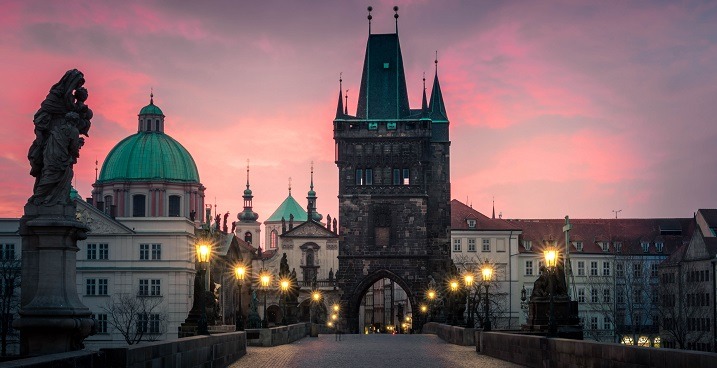Photo by Lachlan Gowen on Unsplash
Carmel Edith Stein of Prague stands as a point of reference for those who are on a journey of research. The experience of the catechumenate.
Dearest Don Francesco,
As promised, I am writing to you a few lines from Carmel Edith Stein of Prague, a small glimpse of reality here in Prague and in the Czech Republic.
The Church had a painful stop in the years of communism; now, thirty-three years after the fall of the regime (November 17), I seem to see a Church that is slowly seeking a new identity. In different ways I see the effort to walk paths and to weave the Church.
Touching, in Prague, is the reality of the church of San Salvatore which, in a particular way, in these years of rediscovered religious freedom, presents itself as a place for reflection, study and dialogue on faith. There are truly numerous young people and adults who approach the Church and also begin the journey of the catechumenate. In fact, many of them, despite coming from completely atheistic backgrounds, are in search.
It is moving to see how the Lord works by inspiring this “search” in hearts, even where there seems to be no trace of God at all.
Many people simply begin to “search,” in the broadest sense of the word, and this leads them to read books on spirituality, attend meetings, listen to interviews on television or in average, up to the point of participating either in a holy mass or in a catechesis of Father Halík. Sometimes it is an invitation from a friend, or perhaps just the curiosity of listening to one of the most important voices on the Czech intellectual scene, that sets off a journey of research.
Along the journey of the catechumenate, which lasts two years, people have the opportunity to ask and share their questions of meaning, of happiness, their thirst for something that transcends and, at the same time, imbues their life with meaning, the their need to have an experience of God, if God really exists.
It becomes the time to reflect in a very personal way on one’s life and on one’s choices, to listen to that voice that whispers from within, but whose language one cannot yet decipher.
The encounter with God is above all an encounter with his Church, and therefore with that community of faithful who can accompany them on this journey through catechesis, through an intellectually frank dialogue, through meaningful relationships, listening and attention for the other .
There are many obstacles they have to face: on this journey they often find themselves alone, without the support of family or friends (indeed they often find themselves going “against the current”), they are weighed down by many prejudices regarding the Church, the loss of not knowing where to turn their search: which religion? Which Church: Protestant, Catholic…?
They can come to admit the existence of a God, it is much more difficult to understand Jesus, or that a historical figure can be God (and why not, then, any other charismatic figure in history?), not to mention the Holy Spirit…
Many need time and, after two years of formation, decide to wait some more, because it is important for them that the choice to receive baptism be made honestly, with full and mature consent.
For our part, not only as nuns, but in general as a community of the faithful, we feel the call to pray for them, but also to forge humanly significant relationships, because we know that this is their first experience of the Church and that this is where , sometimes with words and sometimes even just with the testimony of life, even faith.
We feel the call to grow as a Church open to listening, welcoming, healing wounds, to an intellectually sincere dialogue based on solid personal experience of a human and spiritual journey.
We often recall the words of Pope Francis not to close ourselves “in our circle”, but to open ourselves up to respond to this thirst for God that cries out from the hearts of even the most distant. That is why, in addition to the traditional catecheses, we also offer weekends and spiritual exercises in the house of spirituality in Kolin, where there is much emphasis on the experience of prayer and a personal relationship with God. All this passes through the truth about oneself and about one’s life, as well as about fraternity, a fundamental support for those who are making the same journey.


